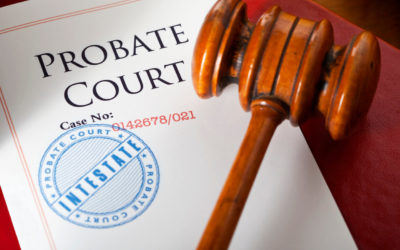
Jesse Bifulco, Attorney, Camden Maine
Estate Planning for Parents of College-Aged Children
At Age 18, Parents Have No Right to Ask About Their Kids
The Family Compact is a legally enforceable set of documents meant to permit parents the right to ask about their child and intervene in emergencies. But more than that, it can discourage predatory lenders from offering your child credit that could hamper their economic life for years to come.
The Family Compact ™ Giving Parents Access to Help Their College-Age Children
Are you the parent of a college-age child? If you have a new eighteen-year-old son or daughter, you have no right to ask their college counselor or their doctor about their wellbeing. Even in an emergency. I’m a lawyer and I felt surprised to be told that I no longer had the right to ask about my eighteen-year-old son or daughter. Why? Because the law says at age 18 a person is an adult.
Are 18-Year-Olds Really Independent?
In the context of health insurance, of the college tuition, the family contribution calculated on the FAFSA form we are told that our children are not really adults at 18. It’s implied, if not stated, that our eighteen to twenty-one-year-old child still has a right to rely on us as parents. As parents we are called upon to continue to be there for our kids even after age 18. And yet we’re told we have no rights. But more than that, an independent college-aged child may need help in an emergency. Without the proper documents that can be a problem.
They won’t tell you about an E.R. visit
ideal college counselor-parent relationships from counselor point of view from Forbes Magazine
What About Their Health? Their Grades?
Parents have no right to know about an eighteen-year-old child’s health, grades – class attendance; really anything that might give a clue as to their wellbeing. At many college orientations the presenter gives the example of an emergency room visit. If four hundred miles away from you, your kid has an emergency room visit they won’t tell you. “We won’t tell you if it happens. We can’t tell you.” The counselor might know your child had an E.R. visit. But, the counselor won’t tell you, even if you call and ask. That may not be such a problem if you child can tell you themselves. But what if they can’t?
A good Family Compact is about cooperation and protection, not control
At 18 They Can Sign Their Name to a Loan
Also, despite the fact that a parent can no longer ask about a college-age child well being, unscrupulous predatory lenders can dangle easy credit under their noses. While the parents, who might be paying the child’s tuition “have no rights”, a stranger with a profit motive, apparently does. And with all of the information available now about our private lives, our buying habits, our age, our address, income and asset information, these predators know exactly who to profile.
A Stitch in Time Saves Nine
There is a problem with this setup. A good parent is one of the few, if not the only person who can recognize a stitch-in-time warning. Whether it is health or lifestyle related or signing up for a bad deal, a good parent is one of the few people willing to act to head off more serious threats to an eighteen-year-old’s future. A good parent also knows that if they fail to make the child reasonably independent, the parent is on the hook. There is no greater incentive than that to help when needed.
A Parent’s Knowledge is a Resource
Never mind the obvious example of a simple emergency. Parents know how their children act when something is wrong. After all, parents have watched their children since birth. Arguably, no person has a greater financial and emotional stake in a college-aged child’s well-being than a parent. A college counselor, even a good one, has hundreds of students. If a college counselor fails to spot and fix a small matter before it becomes a big problem, the counselor is not going to pick up the pieces. An unemployed eighteen-year-old is not going to go and live with the college counselor. Nor is the college counselor going to pay your college students tuition or medical bills. Imagine if the counselor had at their disposal someone who’d be willing to help. An adult with an income and life experience? Someone who really knows the at-risk individual? Well there is someone who will drop everything and expend their human and financial capital to help this particular at-risk college-age child. I would argue, that a good parent, with a healthy relationship is the most important tool in the counselor’s tool bag.

Sometimes you can head off a larger problem by intervening early on.
Have a legal right to ask questions and get information penbaylaw.com Create a Family Compact agreement with an estate planning attorney.
The Family Compact Is Not An Invitation to Be Norman Bates’s Mother
The solution to this dilemma is a Family Compact. Remember the Hitchcock Movie Psycho? Poor Norman Bates couldn’t get out from under his mother’s thumb – even after she died “mother knew best”. Mrs. Bates may be an extreme example of – but you get the idea. The Family Compact concept is not meant to stifle or control a college aged child. If that is your intention, you will doubtless do more harm than good. There are always parents who go overboard. This post is not for them. This post is for a balanced and reasonably concerned parent. As the saying goes, there were many a slip between the cup and the lip. If you have done a reasonably good job as a parent up until the age of eighteen, you probably want to see the job through. The parent I’m writing to has been there all along. The parent who has helped with educational, physical and emotional development in a healthy way. This parent has done what they could to be there. But has also fostered independence. The parent I’m writing to fears that now, when they might be needed most to finish the first part of the job, the law says that they can’t be informed. “Just checking in” questions are not allowed to be answered. A parent cannot be offered a warning sent to them that says: “hey your kid just missed three days of classes” or “hey, your kid went to the e.r. yesterday”. The Family Compact can remedy that situation.
How to Have Legal Standing in an Emergency, Be Informed of Health, Grades and Attendance
Well, there is something you can do about this potential problem. The law gives an eighteen-year-old the right to sign legally binding agreements. These agreements are typically the kind of thing we’re trying to protect them from – excessive debt, long term obligations. But a college aged child can also sign a Family Compact. What’s a Family Compact? The Family Compact formalizes what is usually an unwritten agreement between a good parent and a responsible college-aged child. The Family Compact Legally Enforceable
This is not some symbolic expression of best intentions. Let’s be clear, the Family Compact is legally enforceable. It allows the college-aged child and the parents, together, to spot potential problems, and avoid the problem getting bigger. The parent agrees not to suddenly withdraw their support. But, in exchange, the child agrees not to suddenly end communication with the parent, or at least allow the parent to speak to the people at the college about attendance, grades and counseling issues.
Avoiding Debt
The basic Family Compact is a set of legal documents that allows the parent to ask and be there in an emergency. But it can also go further. When the parents are investing significant money in the college-aged child’s tuition the parents might want to provide some shield against predatory lenders. In reality, the parent is not likely to demand the return of tuition. But as between a predatory lender and the parent, the parent should have priority. Besides giving the parent the right to ask about grades, attendance and health issues A Family Compact can also limit the child’s ability to incur debt. So, a parent with a Family Compact can intercede in an emergency. The Family Compact makes an emergency less likely.
Can A Family Compact Be Changed?
These agreements can be changed and re-negotiated. Such changes can be the sign of a problem, or simply a sign of independence. The mechanisms built into the Family Compact documents allow both the child and the parent to gradually, with proof of performance, wean each other away from the need for legally enforceable rights. But it cannot be done in secret. The college-age child cannot opt out of the Compact without telling the parents.
But We Don’t Need That, Our Child Is Responsible
According to the medical studies the human brain is not fully developed until age 25. Even though your child has always been a good kid, he or she still requires a safety net. The problem with not having a Family Compact is that without a set of legally enforceable documents, either party might suddenly change their position without telling the other. Also, with most irrational decisions, with some time for reflection, the crisis can usually be averted. The Family Compact gives that space. It is also far better and far more mature process to discuss things rather than unilaterally change position.
A Process That Shows You Care
By going through the process of formalizing your unspoken agreement you show that you care. Your child will feel your concern and have a chance to vocalize their objections. If the child wants out, it is only fair that the parent be given the opportunity to stop paying for college. If the parent needs to change circumstances, likewise, the child might need to obtain credit to finish school. It is far better to learn that things are going to change in a significant way before spending a lot of time and money.
Steps to Creating A Family Compact
Once you decide it is a good idea, you should outline your expectations. Also, outline what you anticipate offering in the way of support. Make a short informal list of some of the basic worries you have. For example “you might need me, and I can’t be allowed to help” or “I’m going to pay and help, but you’ve got to get B’s”
The next step is to give fair warning to your child, that, like all the other papers that have been filled out for college, there are going to be some more. Reasonable and committed parents realize already that they do not want to surprise their college-aged child. Also the parent should not make the child feel as though they are trying to limit their independence. As an adult we commit to things. Smart people protect their investments with legally enforceable writings. Even if we both have trust, outsiders will not recognize our unwritten agreement.
You may experience some resistance from a child who is finally feeling like they are getting away from parental authority. It is a natural and desired result of growing and maturity. The parent can emphasize that part of adulthood is committing in exchange for what you want. Chances are your child has an idea of what you expect already. In a healthy relationship, this has begun in High School. But this is not high school. Like it or not the rules do and must change. But that doesn’t mean you can’t have a basic understanding. Once you have that talk about what commitment you expect from your child in exchange for your commitment, now you need to make it enforceable. While planning for an elderly parent is a challenge, we don’t want to overlook some basic planning for our children.
Make Your Family Compact Legally Enforceable
Legally enforceable means that if someone disagrees, the law will enforce the agreement. That means drawing up documents in a way that complies with the requirements of the law. This is complicated and you should consult an attorney. As the originator of the Family Compact, we know what it takes. But rather than merely using the word enforceable, let’s put this in the context of making it possible for the parent to get warnings that things are changing. Also, to have the right to intervene in an emergency. Also the right to receive warnings. Warnings are when a boundary line, that has been agreed upon by the child is crossed. If the parent knows that, they can begin a dialogue, and decide if they want to withdraw financial support. The implicit thing about being an adult is supporting yourself. And at age eighteen, a parent has very little leverage over a child. While a good parent is not going to constantly harp on their financial support, it is not unreasonable to remind a child at a key moment that the parent is investing in their success.
Likewise, if the parent does not live up to their commitment, the child may need to cross the boundaries that have been established. The Family Compact that allow a parent to ask about health, and to ask about grades are not an intrusion. It merely formalizes what is assumed in a good relationship. The Family Compact also makes sure that if the college-aged child or the parents want to change the rules of the game, they have to discuss it with one another first.
A Family Compact Can Protect Against Predatory Lenders
Beyond the agreement between a parent and child, there are predators out there. There are countless unscrupulous entities waiting to prey upon your kid’s status of legal majority. They know if they can get your child to sign on the dotted line, they’re hooked. You can raise them right and teach them about money. But once they’re out on their own, predatory lenders are going to be dangling shiny temptations in front of your child. Easy credit can be a financially ruinous temptation to a young person.
Protection and Cooperation Not Control
The idea is not to control, but to protect against a mistake. Think of the Family Compact as a counterweight against the temptation to sign up for unnecessary debt. If properly drafted a Family Compact can also make your child less appealing to a predatory lender.
In conclusion, the Family Compact is a great way to cover the transition from college-aged child to independent adult. The Family Compact is also a great way to give the parent of a college-aged child security. When a child turns eighteen, both the parent and the child are still linked in many ways. With a formal legal Family Compact, the parent can protect the child, and the child can feel secure that their reasonable expectations of the parents are going to be met.
Want new articles before they get published?
Subscribe to our Estate Planning Newsletter.
More posts from our Estate Planning Law Blog
How to Probate a Will in Maine
Probate checklist, with forms and online filing instructions. Avoid being liable for the debts of the estate when you Probate a will in Maine. Probate lawyer explains some of the tips and traps for the unwary.
Digital Footprint and Estate Planning
Handling a Loved One’s Digital Footprint After They DieJesse Bifulco, Attorney, Camden MaineMost adults have not made a will, let alone created an estate plan addressing their online profiles and accounts. As your online presence grows professionally and personally,...
How to Plan for Your Maine Family Camp or Second Home Estate Plan
70% of kids lose their parent's vacation home in the first generation 90% in the second. Learn how to keep the vacation home or family camp in the family for generationsLegacy Property Family Trust Second Homes & Vacation PropertyWhat is a Family Legacy? 16% of...
Estate Planning for Young Families
We want to continuously update your estate plan as your life changes.
Ten Facts to Understand about Living Wills
Ten Facts to Understand about Living WillsJesse Bifulco, Attorney, Camden MaineA living will is not a last will and testament used to pass your assets and property after you die. Instead, it is a mechanism to communicate to your family and doctors how you want medical...
Cryptocurrency in Estate Planning
For estate planning, there are three key elements for handling cryptocurrency. Read more to learn about Cryptocurrency in Estate Planning.
The Rich and Famous Can Make Estate-Planning Mistakes, Just Like Regular Folks
A cautionary tale about estate planning mistakes.
Creditors and Probate
Personal representatives, beware. Do not distribute assets to beneficiaries before the balance of the estate’s taxes and all outstanding debts are completely paid or dismissed by the probate court.
Talking to Your Parents About Estate Planning
For most of us, estate planning is one of the most challenging topics to discuss with our parents. Even broaching the subject can seem daunting. Despite the challenging nature of this subject, it is one of the most important conversations we can have with our parents.
Five estate planning mistakes
Reviewing your estate planning documents with your attorney will ensure that your desired changes will address your new need without negatively impacting your overall intentions. Call us today at 207-236-4888 to discuss your estate planning goals.















